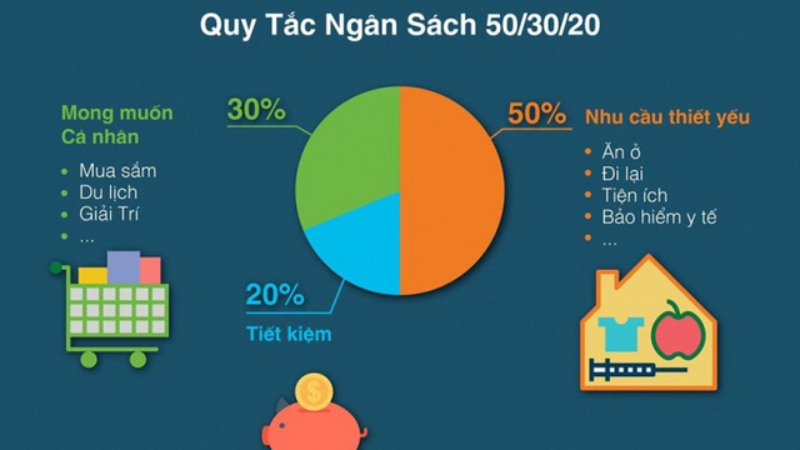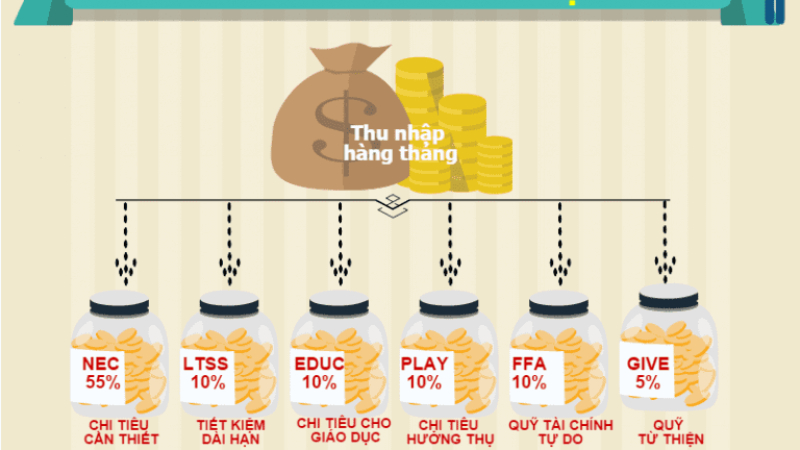1What is expense management?
You can understand expense management as the practice of allocating your money into reasonable amounts for various uses. This is an essential step towards achieving financial independence and freedom.

Only with expense management can you have financial independence
By effectively managing your expenses, you can alleviate financial pressure while also pursuing your future goals without constraints.
25 effective methods of expense management

Effective expense management methods
Pay yourself first
With this method, you allocate a certain percentage of your income, at least 10%, towards savings. This ensures that you prioritize your financial growth before spending the remaining amount.

Prioritize yourself first!
The advantage of this method is its simplicity, ease of use, and time efficiency. However, it does not provide opportunities for investment and profit generation.
50/30/20 Rule
This popular rule recommends dividing your income into three categories:
- 50% for essential expenses such as rent, food, and utilities
- 30% for desired expenses such as travel, shopping, and entertainment
- 20% for savings and debt repayment
Refer to: Simple and accurate guidelines

The 50/30/20 method is quite popular
This method is highly popular due to its simplicity and immediate applicability. It allows for separate allocation towards leisure activities.
However, adjustments may be necessary during challenging times when essential expenses exceed 50%.
Envelope System

This method is quite strict
The envelope system involves using cash and paper envelopes for budgeting. Here are the steps:
- List important expenses each month and assign a budget to each one
- Withdraw cash upon receiving income and distribute it into corresponding envelopes according to the predetermined plan
- Only spend from a specific envelope for its allocated category
- If an envelope is empty, refrain from spending from that category until the next month’s income is received
This method instills discipline and cautious spending, particularly for individuals struggling with overspending or debt. It ultimately facilitates savings and debt reduction.
Jar System

This method is quite confusing for beginners
The jar system, popularized by T. Harv Eker in the book “Secrets of the Millionaire Mind,” involves dividing your income into six jars for different purposes:
- Necessities (NEC) Jar 55%: Expenses for essential needs
- Play Jar 10%: Expenses for personal enjoyment
- Education (EDU) Jar 10%: Expenses for personal development of the mind, knowledge, and skills
- Give Jar 5%: Expenses for charity and helping others in need
- Long-Term Savings for Spending (LTSS) Jar 10%: Saving for travel, buying a house, or purchasing a car
- Financial Freedom Account (FFA) Jar 10%: Allocated for business, investment, and creating additional sources of income
One advantage of this method is the provision for income growth while maintaining a stable current lifestyle. However, it requires vigilance in monitoring daily expenses and can be a bit complicated due to the number of jars involved.
10/20/70 method

This method is new!
This method combines elements from the 50/30/20, 6 jars, and Pay Yourself First methods. Essentially, you divide your income into three categories:
- 10% for savings, with a focus on building an emergency fund
- 20% for personal development, which opens doors to business opportunities, investments, and beneficial relationships
- 70% for daily and leisure expenses, such as entertainment
This method offers simplicity and provides opportunities for income growth without overwhelming daily expense tracking.
We hope that this article has provided you with some effective expense management methods to implement. Invest in finding the method that suits you best!





































